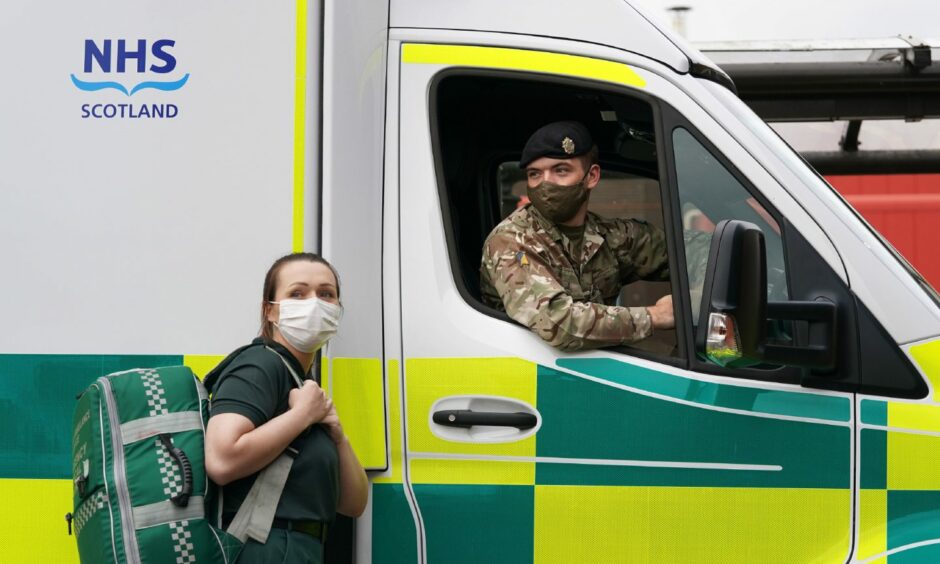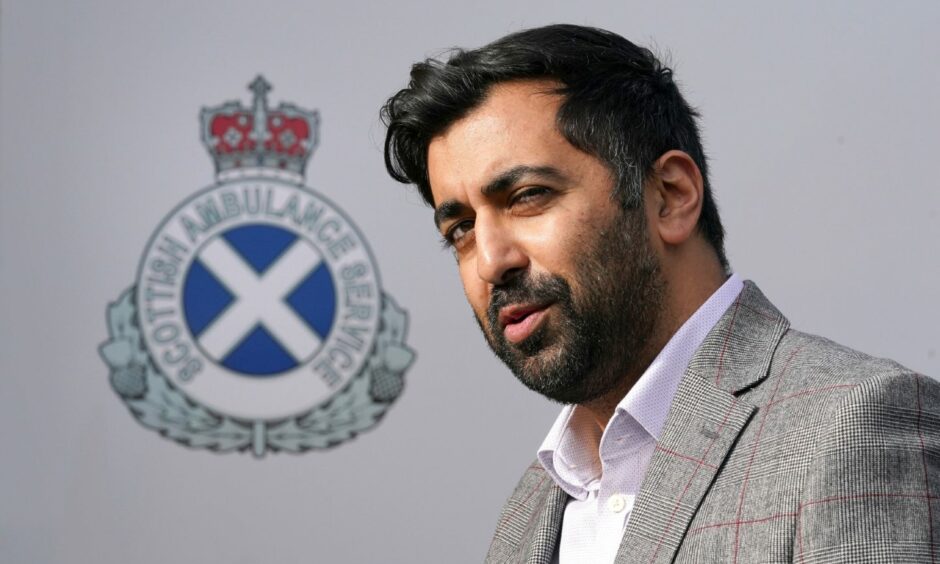NHS Grampian has made a request for military assistance to help cope with the current pressures it is facing.
Warnings have been issued health boards across Scotland could struggle to cope during winter.
Queues of ambulances have been reported outside hospitals across the country due to capacity issues inside hospitals due to Covid.
Nurses, medics, drivers and general troops from the military have already been deployed to support NHS Lanarkshire and NHS Borders.
Army personnel are also supporting the ambulance service.
Now NHS Grampian has confirmed it has also asked for military help.
A spokesman for the health board confirmed a request has been made for assistance.
She explained the authority awaited a decision on what help might be provided and when it might commence, if approved.
Why does the NHS need military help?
The current crisis facing the NHS and ambulance service has been described as the “most extreme circumstances” staff have faced in at least a decade.
Health boards have reported that A&E departments have become busy due to lockdown restrictions easing and a backlog of concerns that patients put off during the early days of the pandemic.
Meanwhile, capacity restrictions inside hospital wards have led to queues of ambulances outside unable to drop-off patients – leading to delays reaching callouts.
Some patients in the north-east have reported waiting more than 12 hours for medical help to arrive.
It is understood capacity issues and problems discharging patients from other hospital wards have also led to delays transferring people from A&E for further treatment – adding to the pressure facing staff.
NHS Grampian’s head of health intelligence, Jillian Evans, told the BBC, before it was confirmed the health board had asked for military assistance, that such a move would be welcomed.
She said: “I am worried about it, it was very busy over the weekend again and I don’t know how we will deal with or sort that situation out anytime soon.
“We have serious staff shortages, vacancies, people being off due to their holidays and being unwell.
“I think we would welcome military support if that was open to us – I think many other boards would feel the same way.
“Particularly support when it comes to nursing staff, we’re lucky to have a great number of volunteers who help us out with transport needs, but military support would be a huge boost too.”
How are troops already helping NHS?
NHS Lanarkshire has received 63 military personnel to provide assistance while NHS Borders has received 23 and 103 have been deployed to the ambulance service.
NHS Grampian did not say what assistance had been requested – only adding that it awaited information from the Scottish Government on what might be provided.
Help provided to the other Scottish help boards have included medically-qualified staff from the Army and support personnel from the Navy.
The military assistance in the Borders and Lanarkshire is due to begin on Tuesday and continue initially until November 10, but will be kept under constant review.
Health Secretary Humza Yousaf says Army and Navy assistance would help both boards support existing staff to reduce waiting times.
When the deployment was confirmed on Friday, he said: “The NHS is experiencing significant pressure at the moment because of Covid-19 admissions and the backlog in care built up during the pandemic and we are taking a range of steps to introduce additional capacity in order to help with the unprecedented pressures on the health and care system.
“With increasing levels of social mixing and close social contact it is expected that this winter Covid-19 will circulate alongside respiratory viruses, such as flu, adding to the winter pressures usually faced by the NHS.”
A Scottish Government spokesman said: “The Scottish Government is aware that a request for military assistance has been received from NHS Grampian.
“Requests from health boards for assistance are assessed by the Scottish Government, with support from our Military Liaison Officers.
“Where Scottish Ministers have approved a request for support, a formal request for military assistance is then made to the UK Government, firstly through structures in Scotland and thereafter to the MOD.”


